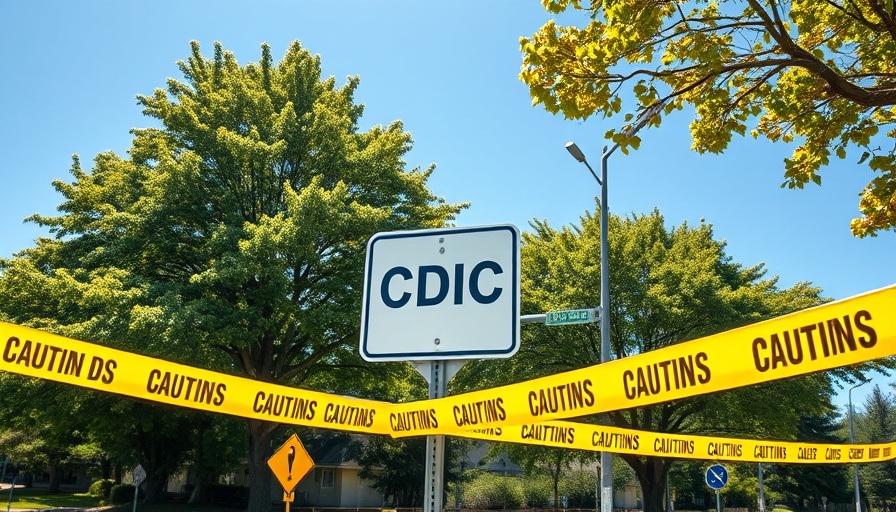
Violence at the CDC: Unraveling the Tragic Incident
The recent shooting at the Centers for Disease Control and Prevention (CDC) headquarters in Atlanta has cast a spotlight on public health, vaccine hesitancy, and the toll that mental health can take on individuals. A 30-year-old man named Patrick Joseph White opened fire, leaving one police officer, David Rose, dead and causing panic across the facility, where thousands work on essential disease research.
Pain and Prejudice: The Shooter's Struggles
According to police reports, White's father alleged that his son had suffered from mental health issues potentially linked to the COVID-19 vaccine, expressing feelings of depression and suicidal thoughts. It's an unsettling reminder that the conversation around vaccines can have dire consequences on vulnerable individuals. Meanwhile, several former CDC employees have pointed fingers at prominent anti-vaccine advocates like Health and Human Services Secretary Robert F. Kennedy, Jr., suggesting that the spread of misinformation has fostered an environment of fear and aggression against public health officials.
A Community in Mourning
The shooting is not just a tragedy for the family involved but also for the broader community. Residents like Sam Atkins of Stone Mountain commented on how gun violence has become an alarming norm in Georgia, indicating the urgent need for discussions about gun safety and mental health resources. This incident serves as a wake-up call that societal attitudes toward health and safety continue to evolve amidst a backdrop of heightened anxiety about personal well-being.
The CDC's Response and Continued Challenges
The CDC has faced significant scrutiny lately; almost 2,000 employees have been laid off, and proposed cuts to the agency’s budget could further cripple its ability to respond to public health crises effectively. As Director Susan Monarez mentioned, the emotional and psychological safety of public health workers must take precedence, especially in light of such tragic occurrences. Moving forward, how the CDC navigates the balance between public education on vaccines and its workforce's safety will be pivotal in regaining trust and credibility.
Looking Forward: Addressing Mental Health
Ultimately, the sad reality is that mental health, gun control, and vaccine skepticism are often interlinked. The CDC's role in providing reliable health information becomes ever more critical when communities are confronted with incidents like this. Engaging in open, supportive conversations about mental health—especially in relation to vaccine hesitancy—can help deter future tragedies. Everyone, from health officials to local residents, has a part to play in fostering an understanding environment.
 Add Row
Add Row  Add
Add 




Write A Comment